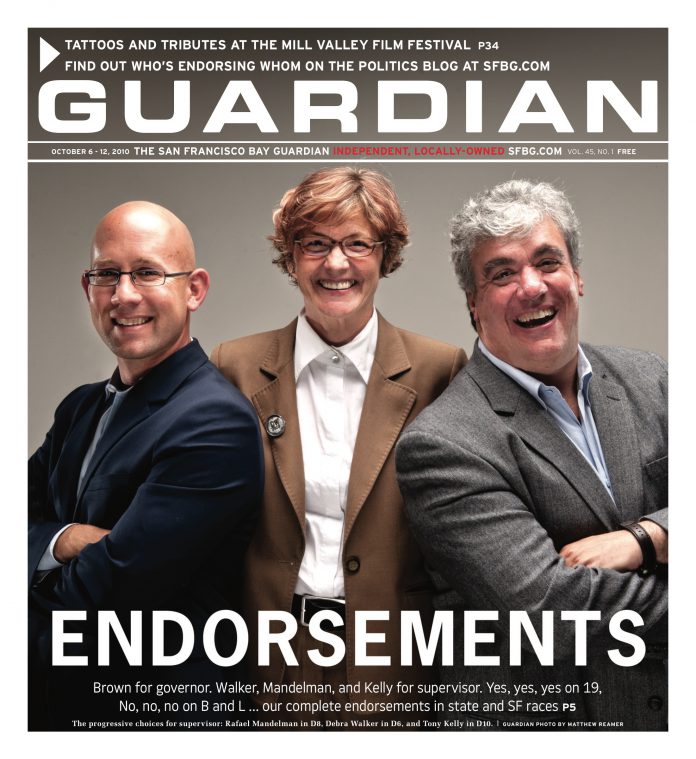arts@sfbg.com
STAGE The recent appointment of L. Peter Callender as artistic director of the African-American Shakespeare Company is exciting news, and not only for the San Francisco–based operation founded in 1994 by Sherri Young. With the Lorraine Hansberry Theatre recently rocked (though thankfully not tumbled) by the untimely deaths this year of its founding directors, Stanley E. Williams and Quentin Easter, the revitalization of a serious theater devoted to “coloring the classics” comes as especially welcome and timely. Moreover, the arrival of Callender — who, as a preeminent Bay Area actor for two decades, brings excellent experience and connections — promises a broadening of AASC’s programming as much as an overall increase in proficiency.
Case in point is AASC’s first outing under Callender’s leadership, IPH …, Irish playwright Colin Teevan’s 1999 adaptation of Euripides’ Iphigenia in Aulis. The U.S. premiere, directed by Dylan Russell, proves an uneven production, but it offers energy, invention, and, not least, Callender himself in a central role. Indeed, whatever its limitations, IPH … has no trouble expanding to fit the cavernous Brava Theater (coproducer for this season opener), which says something about the heft of the company now and going forward.
Callender plays King Agamemnon, leader of the Greek forces assembled at Aulis, en route to make war on Troy, whose Prince Paris has made off with Greek beauty Helen, wife of Agamemnon’s brother and Sparta’s king, Menelaus (Dorian Lockett). It’s a family affair, in other words, to which whole nations of people are unfortunately tied. But before the slaughter commences on the battlefield, Agamemnon must sacrifice one of his very own: beloved daughter Iphigenia (a warm and spirited Traci Tolmaire). A soothsayer has told him it is the condition under which the goddess Artemis will release his ships, now stranded in a dead calm.
In Russell’s expansive staging — which includes effective use of Matt McAdon’s gracefully sloping three-level set and Wesley Cabral’s large video backdrop — Callender’s Agamemnon stirs in nightmares at center stage, haunted and agitated like a giant unused to helplessness. Confronted by the bullying of his humiliated brother and facing the wrath of his proud, outraged, and grief-stricken wife, Queen Clytemnestra (an elegant and imposing C. Kelly Wright), Agamemnon musters all his regal strength. Only before his adorable and adoring daughter does he seem barely up to the task at hand. Callender excels as a leader of men brought to the very brink of emotional collapse by this cruel test of allegiance, responsibility, and resolve. (At times, however, disparities in acting ability can make it seem as if the actors onstage are in separate productions, as when Callender and Lockett’s kingly brothers square off.)
Of course, leaders of state rarely sacrifice their own in waging war — very much to the contrary. All too easy to have other, far less powerful people sacrifice theirs, hence the importance of ideas of “sacrifice” on behalf of a “nation,” whatever that is. (Interestingly, Jon Tracy’s In the Wound, currently making its premiere in a production by the Shotgun Players, is an adaptation of the same Greek myth that takes heated exception to this notion of national sacrifice). The drama as adapted by Teevan emphasizes familial conflict and presents us with the ultimately willing figure of Iphigenia, accepting her own death out of paternal love and a sense of civic obligation and a greater destiny. But the play’s very title suggests an underlying ambivalence, and Teevan frames the story from the world- and war-weary perspective of an old servant (Peter Kybart), who gives us the tale as a flashback, seen from the other side of 10 years of bloody and pointless conflict.
The playwright also balances all with a strain of mischievous humor, centered in a chorus of four catty, flirty women (Natalia Duong, Lisa Tarrer Lacy, Marilet Martinez, Sarita Ocon) who sing their narration to familiar melodies from the “classics” of American pop music — for instance, discoursing ravenously on the manly attributes of Achilles (Luke Taylor) to the tune of Peggy Lee’s “Fever.” The gambit has a generally crowd-pleasing effect, though as presented here it goes on a bit long, diluting the central emotional content of the play.
IPH …
Through Oct. 16; $15–$35
Brava Theater Center
2781 York, SF
(415) 647-2822

